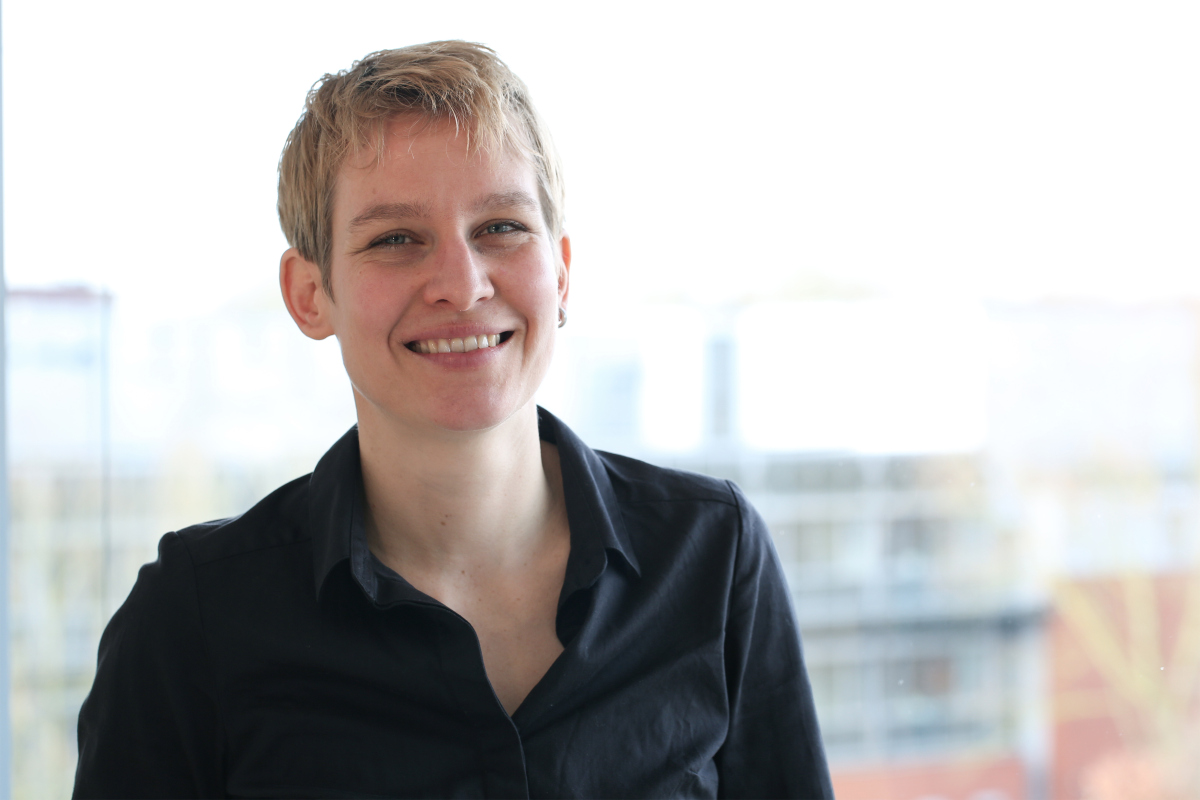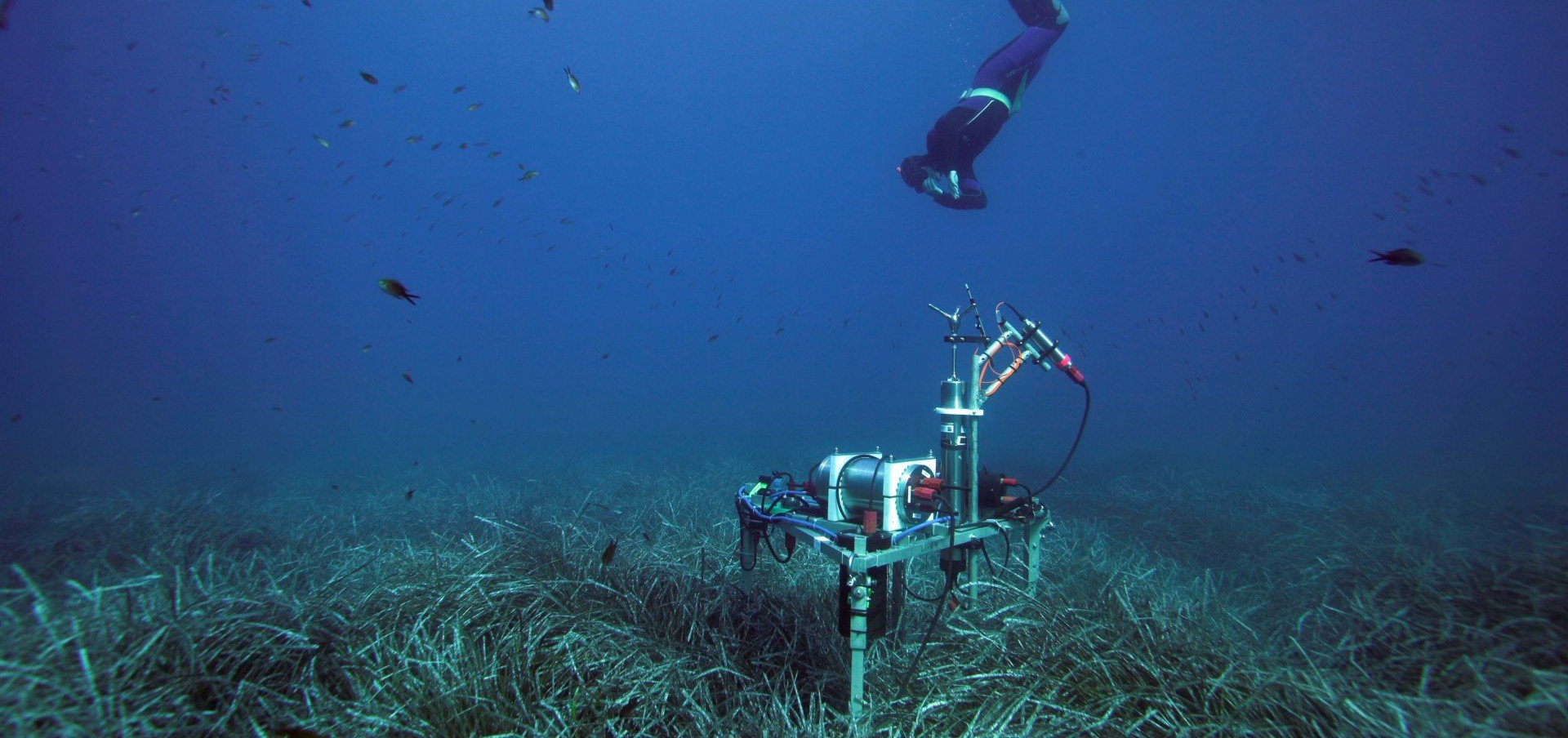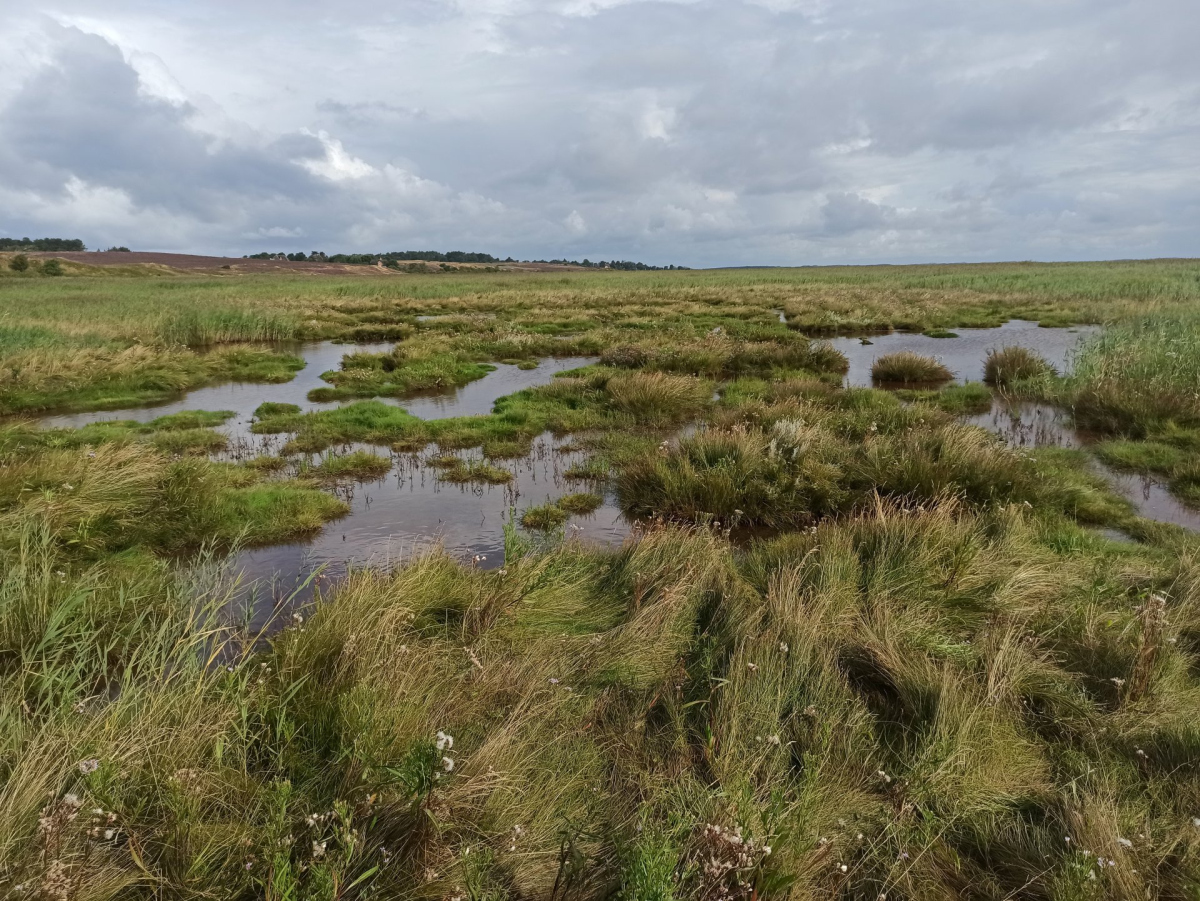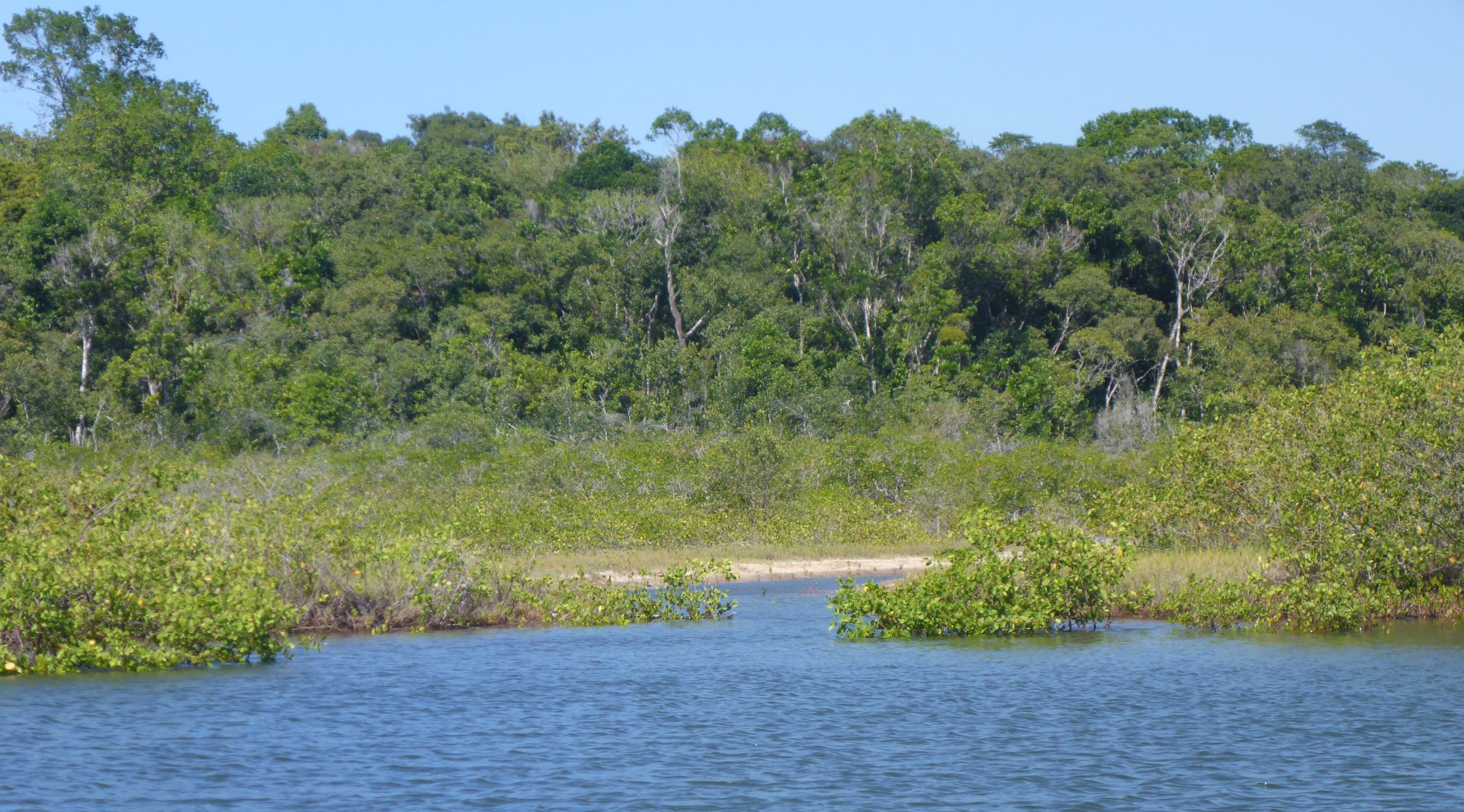- Press Office
- Press releases 2021
- Counteracting climate change
Counteracting climate change: Research consortium sea4soCiety investigates ways to naturally increase carbon storage in coastal ecosystems
As one of a total of six research consortia in the mission "Marine carbon sinks in decarbonization pathways", sea4soCiety will bring together almost 40 scientists from nine northern German universities and research institutes. Over the course of the three-year funding phase they will quantify and analyse the storage capacity for "blue carbon" in four different types of coastal ecosystems on the German North Sea and Baltic Sea coasts, in the Caribbean and the Indonesian Sea. Martin Zimmer, Head of the Department of Ecology at ZMT and Professor of Mangrove Ecology at the University of Bremen, is responsible for coordinating the research project.
Vegetation-rich coastal ecosystems of tropical and temperate latitudes, such as mangrove forests, seagrass beds, salt marshes or kelp forests, absorb huge amounts of carbon dioxide (CO2) from the atmosphere. Mangrove forests in tropical regions alone absorb 40 to 60 million tonnes of carbon annually. That is about as much as road traffic in Germany emits as greenhouse gases per year. The salt marshes of the Wadden Sea on the German North Sea coast store about 20,000 tonnes of carbon annually. The storage of this so-called "blue carbon" is one of the most important services provided by coastal ecosystems.
In recent decades, urbanisation, erosion or pollution have increasingly damaged the properties, processes and services of many ecosystems in coastal regions worldwide. Consequently, the global capacity to compensate for CO2 emissions by storing "blue carbon" in coastal ecosystems has also declined.
“We need concrete measures to counteract this trend so that coastal ecosystems can continue to contribute to climate change mitigation,” explains coordinator Martin Zimmer. “If these ecosystems can absorb more carbon dioxide, this will not only help mitigate the effects of climate change such as sea level rise and extreme weather events, but will also benefit biodiversity and productivity in coastal regions, which in turn can contribute to societal well-being and economic stability.”
The researchers will contribute scientific expertise in coastal ecology, chemistry, sedimentology, geology, hydrodynamics, remote sensing and modelling to quantify the storage capacity of "blue carbon" in seagrass beds, algae, salt marshes and mangrove forests and compare it with the depots of organic material in unvegetated marine sediments.
The origin, stability and dynamics of organic matter are analysed in the field and in the laboratories of the collaborative partners. “We analyze which organic compounds specifically make up this 'blue carbon'. This will help us better understand why there are differences in stability and dynamics,” says Dr. Manuel Liebeke of the Max Planck Institute for Marine Microbiology.
Satellite data and ship-based measurements are used to determine the biomass on land and underwater in coastal zones. Communication with local societies, modelling and scenarios will make an evaluation of the potential benefits and risks of increasing the area of coastal ecosystems beyond their current stocks possible.
“By characterising habitat conditions of coastal vegetated ecosystems, we can identify unvegetated coastal stretches that would be suitable for either expanding or creating new coastal ecosystems,” says Zimmer. “Ecosystem design, i.e. the targeted implementation of ecosystems for the restoration of ecosystem services, plays a central role in our approach to formulating recommendations for the future management of coastal ecosystems.”
Socio-ecological component of the joint project
According to the researchers, suitable measures should be ecologically feasible, environmentally compatible and legally and ethically unobjectionable. Natural scientists are working closely together with researchers from the fields of human geography, socio-economics, ethics and law in an interdisciplinary network to ensure that the approaches to improving carbon storage in coastal ecosystems meet societal requirements, create additional benefits and are based on broad acceptance.
“With its socio-ecological orientation, the project is embedded within the DAM research mission 'Marine carbon sinks in decarbonization pathways' in a multidisciplinary network to investigate natural science, technological, societal, legal and ethical aspects of different CO2 removal methods. Thus, sea4soCiety makes a further and very specific contribution to the overall goal of the mission,” says Gregor Rehder from the Leibniz Institute for Baltic Sea Research Warnemünde (IOW) and one of the spokespersons of the research mission.
“By increasing the capacity of coastal ecosystems to sequester greenhouse gases and securing additional ecosystem services, the sea4soCiety research network contributes to achieving the goals of the Paris Climate Agreement, the United Nations Framework Convention on Climate Change (UNFCCC) and the United Nations 2030 Agenda,” Martin Zimmer concludes.
Members of the sea4soCiety consortium
- Professor Dr Martin Zimmer (coordinator), Leibniz Centre for Tropical Marine Research (ZMT), Bremen
- Professor Dr Kai Bischof, Faculty 2 Biology/Chemistry, University of Bremen
- Dr Annette Breckwoldt, Leibniz Centre for Tropical Marine Research (ZMT), Bremen
- Professor Dr Thorsten Dittmar, Institute for Chemistry and Biology of the Marine Environment (ICBM), Carl von Ossietzky University of Oldenburg
- Dr Mar Fernandez-Mendez, Alfred Wegener Institute Helmholtz Centre for Polar and Marine Research, Bremerhaven
- Professor Dr Jan-Hendrik Hehemann, MARUM – Center for Marine Environmental Sciences at the University of Bremen
- Professor Dr Kai Jensen, Center for Earth System Research and Sustainability (CEN), University of Hamburg
- Dr David Keller, GEOMAR Helmholtz Centre for Ocean Research Kiel
- Dr Ketil Koops-Jakobsen, Alfred Wegener Institute Helmholtz Centre for Polar and Marine Research, Sylt
- Dr Manuel Liebeke, Max Planck Institute for Marine Microbiology, Bremen
- Professor Dr Nele Matz-Lück, Kiel Marine Science, Kiel University (CAU)
- Dr Peter Müller, University of Hamburg
- Professor Dr Natascha Oppelt, Kiel Marine Science, Kiel University (CAU)
- Dr Maike Paul, Leibniz University Hanover
- Professor Dr Beate Ratter, Center for Earth System Research and Sustainability (CEN), University of Hamburg
- Professor Dr Katrin Rehdanz, Kiel Marine Science, Kiel University (CAU)
- Dr. Jens Schneider von Deimling, Kiel Marine Science, Kiel University (CAU)
- Dr Joscha Schmiedt, Leibniz Centre for Tropical Marine Research (ZMT), Bremen
- Dr Michael Seidel, Institute for Chemistry and Biology of the Marine Environment (ICBM), Carl von Ossietzky University of Oldenburg
- Professor Dr Klaus Wallmann, GEOMAR Helmholtz Centre for Ocean Research Kiel
About the research mission
In the research mission “Marine carbon sinks in decarbonization pathways” – in short: CDRmare – of the German Marine Research Alliance (DAM), about 200 scientists in six collaborative research consortia are investigating, how and to what extent the ocean can play a sustainable role in the removal and storage of carbon dioxide from the atmosphere. The long-term goal is to develop a roadmap for the active use of marine carbon sinks in order to contribute to the mitigation of the impacts of anthropogenic climate change and to help achieve the Paris climate goals. CDRmare (CDR = Carbon Dioxide Removal) is coordinated at the GEOMAR Helmholtz Centre for Ocean Research Kiel and the Leibniz Institute for Baltic Sea Research Warnemünde. Germany's Federal Ministry of Education and Research is funding the research mission with 27 million euros over an initial phase of three years (1.8.2021 - 31.7.2024). Further information: www.cdrmare.de/en
The German Marine Research Alliance and its 22 member institutions develop solutions-oriented knowledge and potential courses of action for the sustainable use of coasts, seas and oceans.
Please direct your queries to:
|
Prof. Dr. Martin Zimmer |
|
|
Phone: |
|
|
Mobile: |
|
|
Fax: |
+49 421 23800-30 |
Head of Press & Communications
MPI for Marine Microbiology
Celsiusstr. 1
D-28359 Bremen
Germany
|
Room: |
1345 |
|
Phone: |



